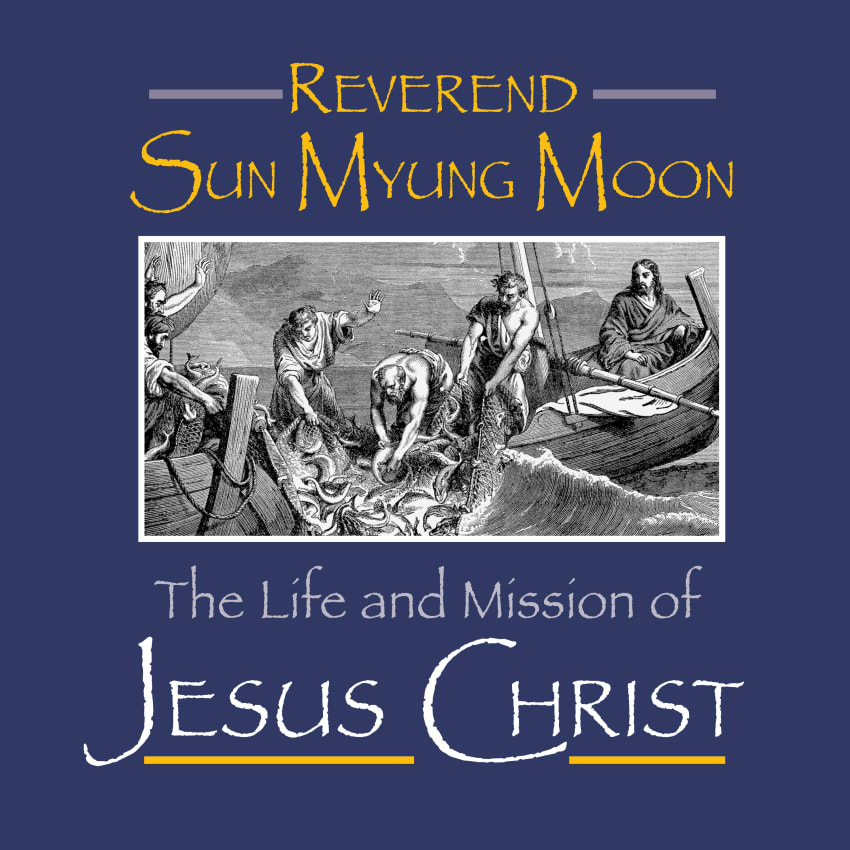The Life and Mission of Jesus Christ: Episode 48
Rev. Sun Myung Moon: The Life and Mission of Jesus Christ
Chapter 5: Ethics of the Kingdom, The Good Samaritan, Page 125-127
The Good Samaritan
In reply Jesus said: “A man was going down from Jerusalem to Jericho, when he fell into the hands of robbers. They stripped him of his clothes, beat him and went away, leaving him half dead. A priest happened to be going down the same road, and when he saw the man, he passed by on the other side. So too, a Levite, when he came to the place and saw him, passed by on the other side. But a Samaritan, as he traveled, came where the man was; and when he saw him, he took pity on him.
“He went to him and bandaged his wounds, pouring on oil and wine. Then he put the man on his own donkey, took him to an inn and took care of him. The next day he took out two silver coins and gave them to the innkeeper. ‘Look after him,’ he said, ‘and when I return, I will reimburse you for any extra expense you may have.’
“Which of these three do you think was a neighbor to the man who fell into the hands of robbers?”
The expert in the law replied, “The one who had mercy on him.”
Jesus told him, “Go and do likewise.” (Luke 10:30-37)
Which people are most likely to go to heaven—those who are at the top of human society, such as the rulers and people in power, or those at the bottom, who are at the lowest rung of society? Which group is more likely to go to heaven, the first or the second? Do you like the bottom of society? You have to go through the bottom of hell in order to reach heaven.
Living in the Highest Historical Age
April 9, 1989
Evil is self-centeredness. The person who makes himself the center of everything is an evil person. What is good? A good person exists solely for the sake of others. A good man is always trying to give of himself to make others happy, trying to bring benefit to them.
I want you to know that there is a universal law and princi- ple created by God that declares that anyone who builds his life on absolute love and the absolute ideal of service to others will have the rest of creation respond to him as his object. This is a universal law that no one can bend. It is true simply because God is such a person. God exists in that ideology and it is God’s own way of life. God controls this world through the philosophy of giving himself for the sake of others.
Our Family in Light of the Dispensation, Part II
March 6, 1977
Jesus went beyond the limited concept of law when he lived love; he went beyond the concept of race because he wanted to belong to the world. He also went beyond his own religion, transcending the detailed tenets of Jewish law because he was faithful to broader principles. He loved not only the Jews but also even the enemies of his people, as well as the rest of the world. Jesus could even embrace the people who crucified him.
If Jesus lived in today’s America, would he advocate segregation of white and black people? White people may feel most comfortable with their own kind because they can digest that situation, but God would warn them that as long as they fail to follow their Christian ideals by failing to accommodate black people and bring unity, then white people themselves risk their own survival.
The Way of Prosperity and Defeat
March 11, 1979
Our homeland is the earth as God originally intended it to be—a place where parents, siblings, and children who did not commit the Fall would live together. This was to be a place where black people, yellow people, and white people could live together in harmony. Who is the parent of all these different races? There is only one parent. The God who is with us wherever we go in the universe is the Father of humankind. Thus, it would be a mistake for anyone to think that white people, black people, or yellow people are the masters of America. God is the master of America.
Differences in skin color are nothing more than the result of our ancestors having had to adapt to different climates and environments in different parts of the globe. In areas with large amounts of snowfall, we find mainly white people living. In places such as Africa where the rays of the sun are particularly bright, we find mainly black people. Fundamentally, though, people are the same. The color of our blood is the same. Our flesh and bones look the same. We all have the capacity to love. Thus, there should be no discrimination based on race.
The Cosmos Is Our Hometown and Our Fatherland
February 2, 2000
Jesus said, “Love your enemies”—but Jesus also said, “Love your neighbor.” Who is a Christian’s nearest neighbor? Certainly, it is another Christian. But are they doing it? Do Catholics love Mormons? Do Jehovah’s Witnesses love Methodists? It doesn’t matter who calls us heretics, whoever practices this principle of loving one’s enemy is closer to God and is the true orthodox Christian. That is my belief. Love can unite. If Christians practice true love, then Christians can unite among themselves, and Christians can unite all the religions of the world.\
Jesus’ Standard of Goodness
January 1985
Godible is made possible by listeners like you!
DONATE



 FFWPU, USA
FFWPU, USA